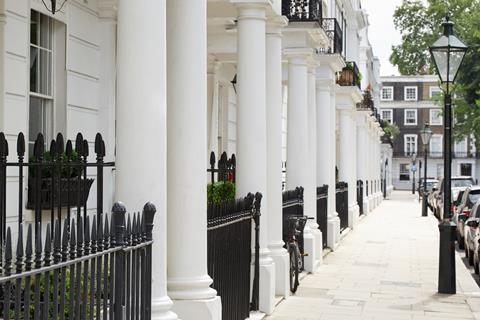Whisper it, but something seems to be stirring in the hitherto moribund London residential market. People have stopped fretting about Brexit and started buying and selling houses again.

Just to be clear, I’m talking about volumes reviving, not prices. It might have been prompted by misguided optimism about the prospect of a deal ahead of the EU summit on 10 April, which resulted in a six-month delay, but two weeks earlier, estate agents had started mumbling about a rise in buyer and seller enquiries.
“In the past three weeks, our registration of buyers has seen a huge uplift,” said a large chain’s branch manager in one of south London’s leafier suburbs. His combined local branches had registered an increase of some 330 new buyer enquiries for the three weeks before Easter – 19% higher than the three weeks prior.
There is always a pick-up at this time of year, he conceded, but “these are the largest increases I’ve seen for about four years”. The biggest rises, of 27%, were for homes priced between £700k and £900k. Only those above £1.5m saw falls.
Up in north London, a longstanding contact, Jeremy Leaf of Jeremy Leaf & Co, told me: “Buyers and sellers of existing homes are still very cautious. Nevertheless, we have noticed an increase in demand especially for smaller family houses.”
My view of Brexit’s impact on the housing market has always been that it has been vanishingly small the further north in the UK you venture from Highbury Corner. (Much of the rest of the country now seems to be slowing down, not because of Brexit, but stretched affordability, according to recent RICS surveys.)

Even in the capital, prices and volumes have been suppressed overwhelmingly by simple rules of property: homes were too expensive to start with; too many new-build flats have been flooding the market (more on that later); and a wave of debilitating tax changes that (probably deliberately) knocked the stuffing out of the most speculative excesses of the London market.
It’s fair to say that the shenanigans in Westminster and daily predictions of economic Armageddon in the FT and Guardian have scared many would-be buyers and sellers into sitting on their hands.
But with the can kicked six months down the road, MPs mercifully packed off on their Easter breaks and sizzling weather, a miraculous silence seems to have broken out across the land. People, even in my fiercely divided household, have stopped mentioning the bloody ‘B-word’ for a while.
Hostilities will no doubt resume but the lull may have engendered a spirit of pragmatism. “I just want to get on with it,” a prospective first-time buyer at work told me. One of the biggest obstacles to transactions picking up – the gulf between sellers’ aspirations and buyers’ offers – may be starting to narrow, I suspect.
There is the prospect of a release of pent-up demand, but this should be tempered by the fact that few owners in the secondhand market are forced sellers.
New-build market
A very different picture emerges in the new-build market, according to the latest survey of development activity from Molior London. The key problem is that 66,000 units are under construction in the capital, a new record for the survey. In many ways, developers are forced sellers, especially the more indebted ones.
It’s pretty calm in zones 3 to 6, which is supported by the government’s Help to Buy programme, available for homes up to £600k. Zone 1 tells a different story. The executive summary of the (very expensive) quarterly report describes the selling environment as “highly competitive” according to respondents, with buyers “comparison-shopping and bargaining aggressively” in the process.
One example was given by an exasperated agent for one of many developers competing in the sprawling Nine Elms area: “On several recent occasions negotiators there have been shown signed reservation paperwork from other developments nearby. They have then been bluntly told to better the terms agreed… and also to reimburse the reservation fee paid to the rival development.”
My view is that some of the largest foreign developers, particularly Chinese, are likely to sit on their hands more out of dogged pride than economic sense. Less secure developers, in sites that have not got off the ground, could take the money and run and sell off – no doubt at a fairly deep ‘haircut’ – to cash-rich rivals.
But rumour has it a good chunk of the units under construction have not been sold. Some of the remaining ‘off-plan’ buyers could renege. What will happen to these empty apartments, I wonder? Bulk-bought cheaply by housing associations, perhaps?
Alastair Stewart is an equities analyst and consultant






























No comments yet